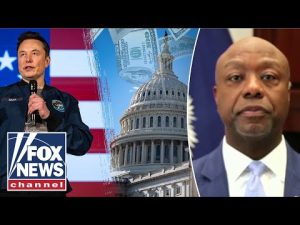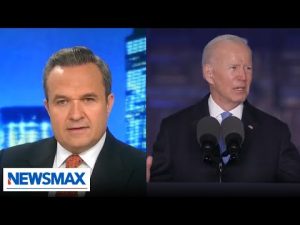In Boulder, Colorado, the atmosphere is heavy with sorrow and outrage after a shocking attack on members of the Jewish community. The incident has sparked heated discussions about immigration policies and national security. Congressman Brandon Gill took to the airwaves to express his deep concern over the attack, pointing fingers at the Biden administration for what he described as a grave oversight in allowing an alleged Islamic terrorist, Mohammed Suleiman, into the country. According to Gill, Suleiman obtained a B-1/B-2 visa upon entering the United States and overstayed not only his visa but also a work permit that the administration granted him.
Congressman Gill emphasized that this tragic event highlights a larger issue—a perceived failure of the current immigration system that, in his eyes, is becoming more dangerous by the day. The underlying concern here is the safety of American citizens, particularly the Jewish population, who Gill argues should not live in fear while going about their daily lives. With growing instances of anti-Semitism across the nation, including protests on college campuses that have become increasingly hostile, Gill’s warnings serve as a rallying cry for critics of the current administration’s immigration policies.
He further highlighted the seriousness of the situation by noting recent violent incidents, including the murder of two Israeli diplomats in Washington, D.C., which he claims are part and parcel of a troubling trend. This narrative paints a picture of a country where political and religious tensions threaten the safety and freedoms that Americans hold dear. Gill’s remarks touched on the importance of open discourse and debate, reminding everyone that resorting to violence is fundamentally opposed to the principles that the nation was built upon.
The Congressman, who plays pivotal roles in the House subcommittee and the House Budget Committee, didn’t shy away from placing the spotlight on Suleiman’s migration story. He argued that Suleiman’s presence in the U.S. was a preventable mistake, suggesting that stricter vetting and adherence to immigration laws could have averted the current crisis. Gill’s concerns are not just rhetoric; they resonate with many who worry that unchecked immigration poses an existential threat to the fabric of American society.
As the aftermath of this horrific event unfolds, the dialogue surrounding immigration is likely to intensify. Congressman Gill’s proactive stance against mass migration and calls for accountability in the immigration process reflect a growing sentiment among many conservatives who are urging for comprehensive reforms. With further congressional actions on the horizon, including proposals to cut funding to certain organizations, it seems that the debate over immigration and national security is far from over. Although actions are being taken to address these pressing concerns, the cloud of uncertainty hangs over Boulder and the rest of the nation as communities seek justice and a return to safety in a rapidly changing world.







